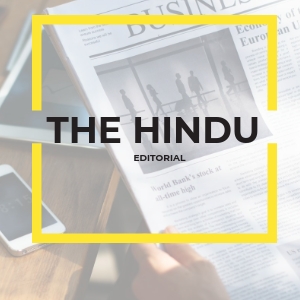Read Hindu Editorial: Feb 14 -Rebel factor, Minority choices

Read Hindu Editorial: Feb 14
Rebel factor, Minority choices
Uttarakhand goes to the polls on Wednesday for its fourth Assembly elections since its formation after it was carved out from Uttar Pradesh in 2000. The electoral fight here has always been between the Congress and the BJP, but this time around the bipolar contest has been muddied (Confused) with rebels from both parties expected to act as spoilers. By virtue of how the two national parties have conducted their campaigns, the election is billed as a contest between Chief Minister Harish Rawat of the Congress and Prime Minister Narendra Modi of the BJP. The Congress has sought (attempt to find (something), Seek) to make the polls a referendum (Popular Vote, Poll) on the performance and image of Mr. Rawat. The Chief Minister lost his post temporarily last year with the imposition (forcing) of President’s Rule, before a Supreme Court verdict returned him to power. The BJP has projected Mr. Modi as the face of its campaign, and focused its attack on Mr. Rawat. This personality-centric strategy has meant that issues such as flood and disaster relief and reconstruction, protection of the environment and declining farm productivity in the hills have been pushed to the margins. Instead, the OROP issue, demonetization — the effects of which are more pronounced in the plains than in the hills — and abstract promises on employment-centered development and promotion of tourism have found more air, as they were the calling cards of Mr. Modi and Mr. Rawat during the campaign. The two parties have relied (Confident on) on contrasting strategies, with the BJP undertaking a door-to-door, grassroots effort in the hills and the Congress fielding its campaign strategist Prashant Kishor to up its social media pitch. As has all along been the case in Uttarakhand, the contest is expected to be close.
The second phase of polling in U.P., in Rohilkhand, on Wednesday covers constituencies that have a relatively higher proportion of Muslim voters. Expectedly, the Samajwadi Party-Congress combine and the Bahujan Samaj Party have sought to consolidate(Combine) minority support, which is reflected in the selection of candidates. However, reducing the contest in these seats in northwestern U.P. to merely the question of which party is more secular(Non-religious) would be a disservice to the voters, who make up 17% of the State’s population and who live in a region with abysmal (Very bad) socio-economic indicators. While many of those engaged in the small-scale and unorganised sector have been severely affected by demonetisation, better agricultural productivity in the last year has helped farmers raise income levels. These developments are expected to have an impact on electoral choices, continuing the trend of unpredictability in the U.P. elections this year.





